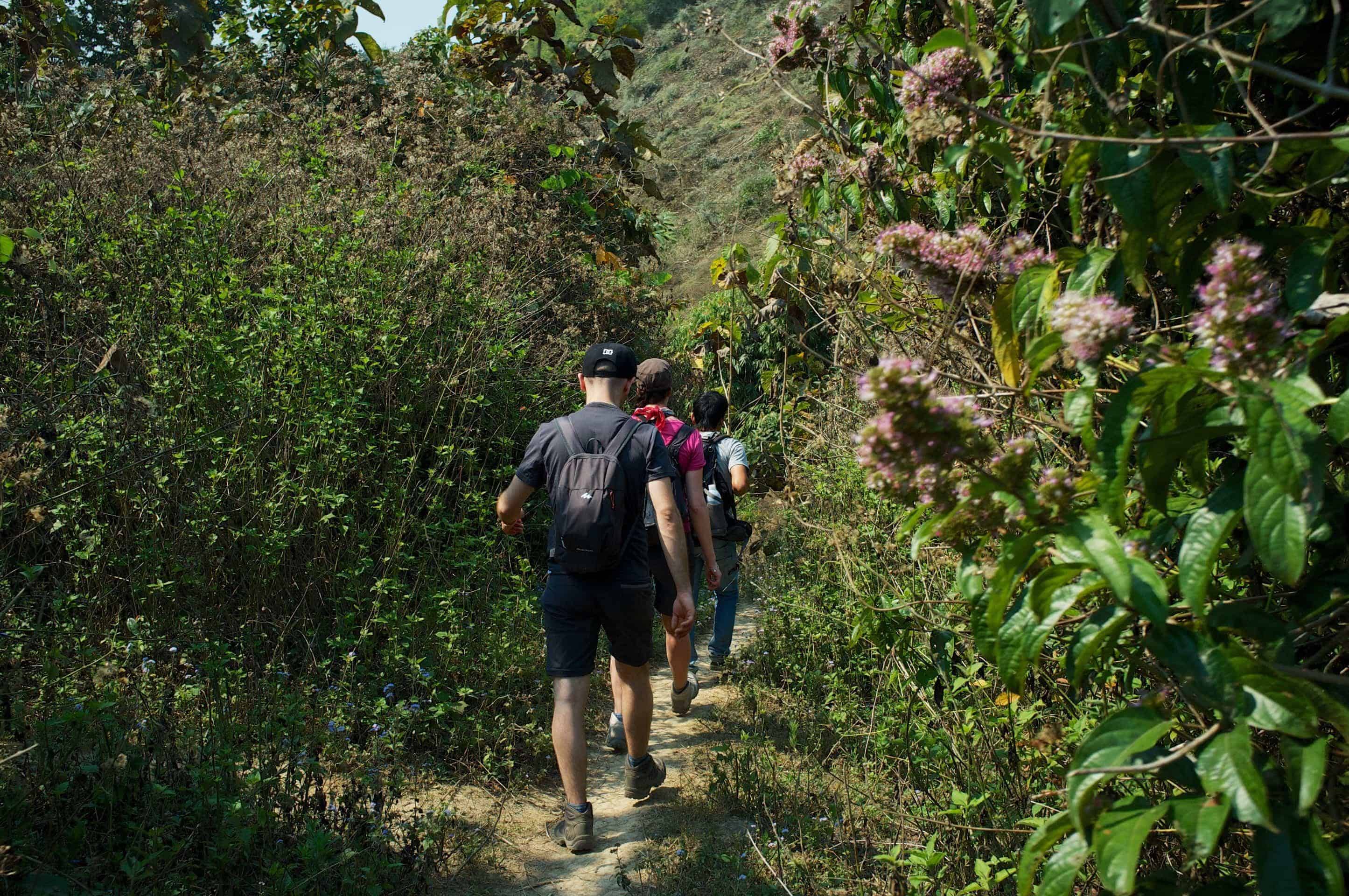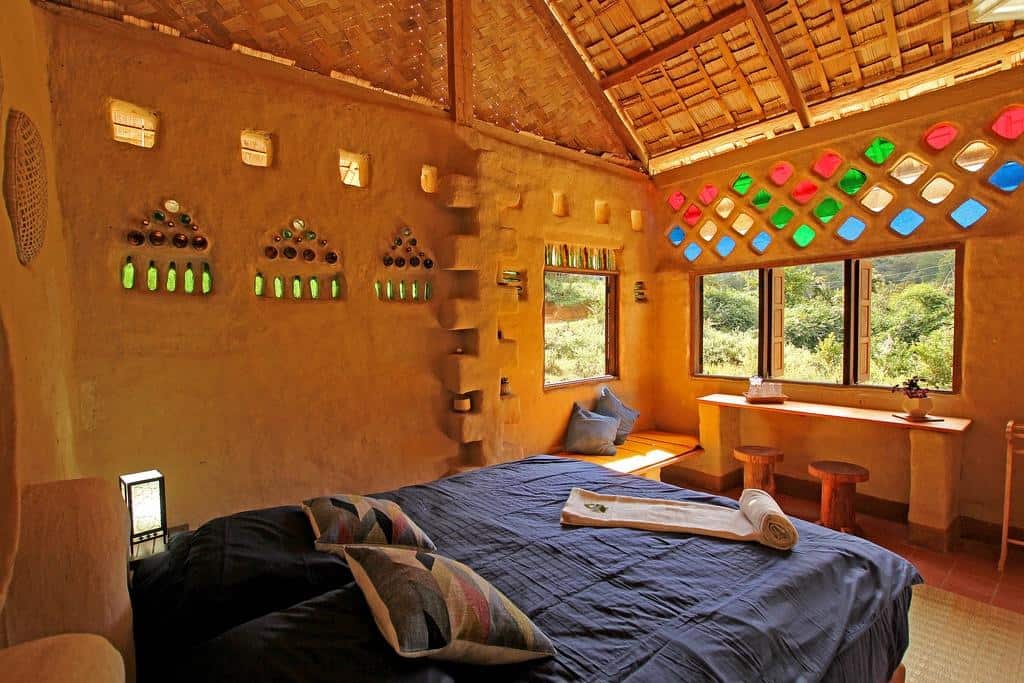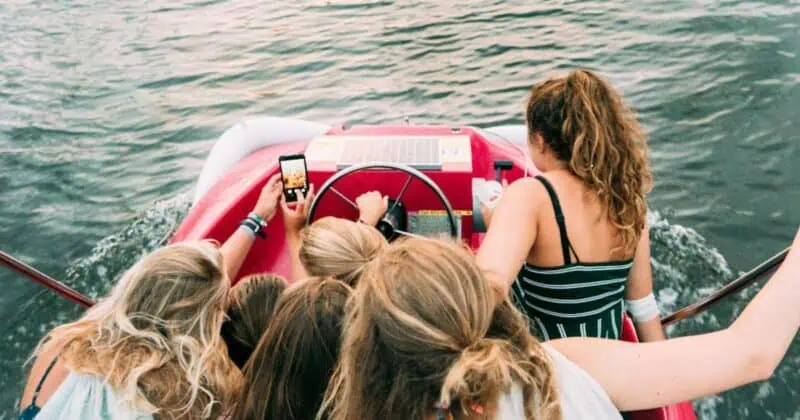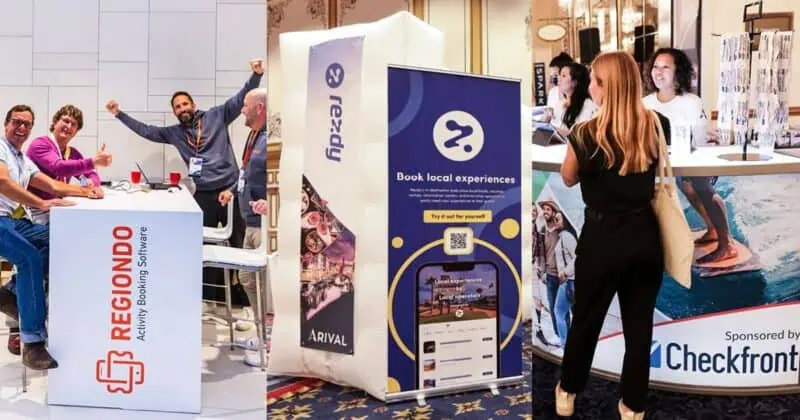This Laos-based tourism company built a network of hiking trails and bungalows to bring tourism dollars into remote villages—and preserve local culture.
Nestled in the lush, northern mountainous region of Laos is the tourism hotspot of Luang Prabang, a provincial city that features beautifully preserved temples, traditional architecture, and artistic heritage. A UNESCO World Heritage Site, in recent years Luang Prabang has experienced a tourism boom—the city of around 50,000 people hosts an estimated 500,000+ travelers per year, which has led to infrastructures such as hotels, roads, and dependable electricity, and higher incomes.

“The Fair Trek initiative is trying to develop and diversify tourism spend by adding an extra revenue stream,” says Tom Partridge, biking manager for Tiger Trail Travel who worked extensively on Fair Trek. “Our goal is to take a trickle of that tourist dollar into communities where even a tiny amount of money can make a huge difference.”
Between 2015 and 2018, Fair Trek has brought over $50,000 into several villages, including Long Lao Mai, Nong Khuay and Houy Fay, which has helped build fences, improve infrastructure, build toilet facilities, P.A. systems for improved village communication and more.
How Fair Trek Works
Through a long-term partnership with the Swedish volunteer organization World Volunteer, students from around the world participated in a service-learning project to build three beautiful Eco-Bungalows from adobe and cement in host villages. Student expeditions—and the villagers who are paid to host them—are also responsible for the maintenance of each Eco-Bungalow and nearby hiking trails.
With a guide, travelers in the Fair Trek program hike between 9 and 10 kilometers to each village, stay in the bungalows, have a meal with community members, and learn a skill or craft from local artisans, such as weaving textiles or learning about the local flora.
“It’s a wonderful and unique way to experience a new culture, and all the money generated in the accommodation and food costs contribute to the village’s fund and go toward maintaining roads, etc.,” says Partridge, who adds that last year, 200 people visited Fair Trek’s bungalows.
Local Support is Key to Cultural Immersion

Partridge says earning the trust and support of each village—and managing realistic expectations—was also instrumental in building this tour product. “Local knowledge is priceless. When you go into building these projects, it has to start by forming a relationship with communities. It’s going to take money and it’s going to take time,” says Partridge. “When you get the relationship and friendliness, people are more open to ideas and suggestions. You need their cooperation.”
Although Fair Trek works solely in Laos, the tour serves as a model to all operators seeking guidance on using tourism to improve rather than harm each destination’s cultural heritage—a problem the city Luang Prabang is all too familiar with.
At least one article has chronicled the ill effects of tourism on a hallowed local custom: a morning ritual called tak bat, in which monks accept alms from Buddhist devotees. “For centuries, Luang Prabang’s monks have filed through these streets at dawn to collect alms from the local community,” reports South East Asia Globe in 2016. “In more recent times, however … tak bat has ceded ground to another, noisier ritual—one of shutters and flashes and frenzied jostling for position along the crowded streets.”
In travel, there’s a fine line between cross-cultural exchange and spectacle. Fair Trek gets it right by focusing on cultural immersion, partnership, and mission. “We’re a tourism company,” says Partridge. “But our heart is with the communities we operate in.”

















